Contributions of Online Gambling to United States Tax Revenue
Gambling can cause illicit activities, but countries still allow this industry to roam free. This is because the gambling industry…
Continue Reading
Senate District

Politics And Gambling
On our post regarding states most likely to legalize online gambling, we mentioned that West Virginia is one of the…
READ MOREFor now, four states have approved the legalization of the operation of online gambling sites and services within the boundaries…
READ MORE
For anyone who loves gambling, being a dealer in casinos may seem the greatest job in the world. Not only…
For now, four states have approved the legalization of the operation of online gambling sites and services within the boundaries…
There are perhaps too many books about gambling out there. What’s more, you’ll find that a lot of them have…
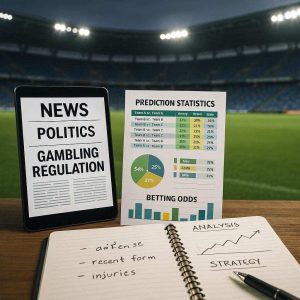 Today football prediction is often viewed as a purely statistical activity. Many bettors focus only on team form and match data. However, politics and gambling regulations play an important role in shaping the betting landscape. Understanding this environment helps you make more informed decisions.
Today football prediction is often viewed as a purely statistical activity. Many bettors focus only on team form and match data. However, politics and gambling regulations play an important role in shaping the betting landscape. Understanding this environment helps you make more informed decisions.
Governments regulate sports betting differently across countries. Some nations allow fully licensed bookmakers. Others impose strict restrictions or outright bans. These regulations influence which platforms operate legally and how they set their odds. As a bettor, you must understand the legal framework in your region.
Tax policies affect bookmakers directly. Higher taxes may reduce promotional offers or adjust payout structures. This can influence the value you receive from certain markets. Awareness of these policies helps you choose platforms carefully.
Advertising restrictions are another political factor. In some countries, betting ads are limited to protect consumers. This reduces aggressive promotion and may create a more stable market. In less regulated regions, heavy advertising can increase betting activity and public hype.
Political stability also influences sports operations. Travel restrictions, visa delays, and diplomatic tensions can affect international competitions. Teams may struggle with preparation if external factors interfere. These issues may not appear in match statistics, but they can influence performance.
Politics often shapes public opinion. Major national events or social issues can influence fan behavior. In international tournaments, national pride increases emotional support for certain teams. This can affect betting volume and shift odds.
When many bettors support a popular team, bookmakers adjust their pricing. Odds may shorten even if performance data does not fully justify it. This creates potential value opportunities on less favored teams. Understanding this dynamic helps refine today football prediction strategies.
Media coverage also plays a strong role. News headlines may exaggerate a team’s strength or weakness. Political controversies involving players or clubs can create distractions. These factors may affect morale and focus.
Economic conditions within a country can impact club finances. Financial limitations may restrict player transfers or squad depth. Over time, this influences team competitiveness. Long-term political and economic trends shape league strength and stability.
Responsible gambling campaigns are often driven by government initiatives. Deposit limits, self-exclusion tools, and awareness programs are designed to protect bettors. These measures promote safer betting behavior and encourage discipline.
Understanding the political and regulatory environment allows you to evaluate risk more clearly. It also helps you recognize when market movement is driven by sentiment rather than solid analysis.
Today football prediction should combine statistical research with awareness of external influences. Match data interpretation remains essential. Review recent form, goals scored, defensive performance, and head-to-head history.
At the same time, consider broader factors. Check if a team faces travel challenges. Review any political or administrative issues affecting the club. These elements may influence preparation and focus.
Bankroll management remains a priority. Set a fixed budget before betting. Divide it into smaller units to reduce risk. Even strong predictions can fail due to unexpected events.
Avoid emotional betting driven by public hype. Analyze whether odds movement reflects genuine performance shifts or simple market enthusiasm. Calm evaluation improves consistency.
Keep detailed records of your wagers. Note your reasoning for each prediction. Review results regularly to identify strengths and areas for improvement.
Specializing in certain leagues enhances accuracy. When you understand the political and regulatory environment of a specific region, you interpret market behavior more effectively.
Sports betting should remain controlled and sustainable. Politics and gambling regulations shape the industry, but disciplined analysis shapes your results. By combining data-driven research with awareness of external influences, you create a more complete today football prediction approach.
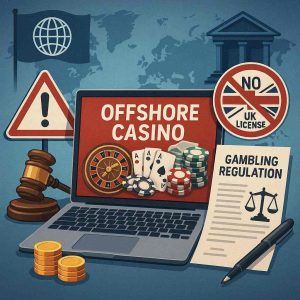 Casinos without UK license have become more visible in recent years. At the same time, gambling laws have become a political topic in many countries. Governments now debate how much control should exist over online betting. These discussions directly affect how casinos operate and how players access gambling platforms.
Casinos without UK license have become more visible in recent years. At the same time, gambling laws have become a political topic in many countries. Governments now debate how much control should exist over online betting. These discussions directly affect how casinos operate and how players access gambling platforms.
Casinos without a UK license are platforms that choose not to register with the UK Gambling Commission. Instead, they operate under licenses from other regions. These may include Curacao or other international regulators. This approach allows them to follow different rules.
The UK has strict gambling regulations. These rules aim to protect players and reduce harm. They include limits on bonuses, deposits, and advertising. While these rules are designed for safety, some operators see them as too restrictive.
By operating outside the UK system, casinos gain flexibility. They can offer higher bonuses, fewer betting limits, and faster sign-ups. This makes them attractive to players who want fewer controls.
Politics plays a role here. Gambling laws are shaped by public pressure and government goals. In the UK, gambling reform has focused on consumer protection. This has pushed some operators to target international markets instead.
As rules tighten in one country, businesses often move to regions with lighter regulation. This is common across many industries, not just gambling.
Gambling regulation is deeply tied to politics. Governments balance revenue, public health, and social concerns. Some countries view gambling as an economic opportunity. Others see it as a risk that needs control.
In stricter regions, politicians often respond to concerns about addiction and debt. This leads to tighter laws and more oversight. In more relaxed regions, governments focus on attracting businesses and tax revenue. This creates space for offshore casinos.
International differences create a patchwork of rules. A casino legal in one country may be restricted in another. This is why many platforms operate globally but avoid certain markets.
Political debates also affect advertising and access. Some governments block gambling sites or restrict payment methods. Others allow open access but impose taxes or reporting rules.
Casinos without a UK license exist because global regulation is not unified. There is no single international gambling authority. Each country sets its own rules based on political priorities.
For players, this means choice but also complexity. Access depends on location, laws, and enforcement.
For players, casinos without a UK license offer both opportunity and risk. The opportunity comes from flexibility. These platforms often provide wider game options, higher bonuses, and fewer restrictions.
The risk comes from limited protection. UK-licensed casinos must follow strict dispute and fairness rules. Offshore platforms may follow different standards. If a problem occurs, resolving it can be harder.
Players should stay informed. Understanding why a casino operates offshore helps set expectations. Not all non-UK licensed casinos are unsafe, but not all are reliable either.
Looking ahead, politics will continue to shape gambling. Some countries may tighten rules further. Others may open markets to attract operators. Technology also plays a role, especially with digital payments and global access.
We may see more international cooperation in the future. Governments could work together to set basic standards. Until then, offshore casinos will remain part of the landscape.
For now, responsible play and careful research are essential. Players should choose platforms with clear licensing, good reviews, and strong support systems.
Casinos without a UK license exist because gambling laws are shaped by politics. Different countries have different goals and concerns. This creates both strict and relaxed environments for operators. For players, this means more choice but also more responsibility. Understanding the political and regulatory background helps you make better decisions. Gambling should always remain informed, controlled, and enjoyable.
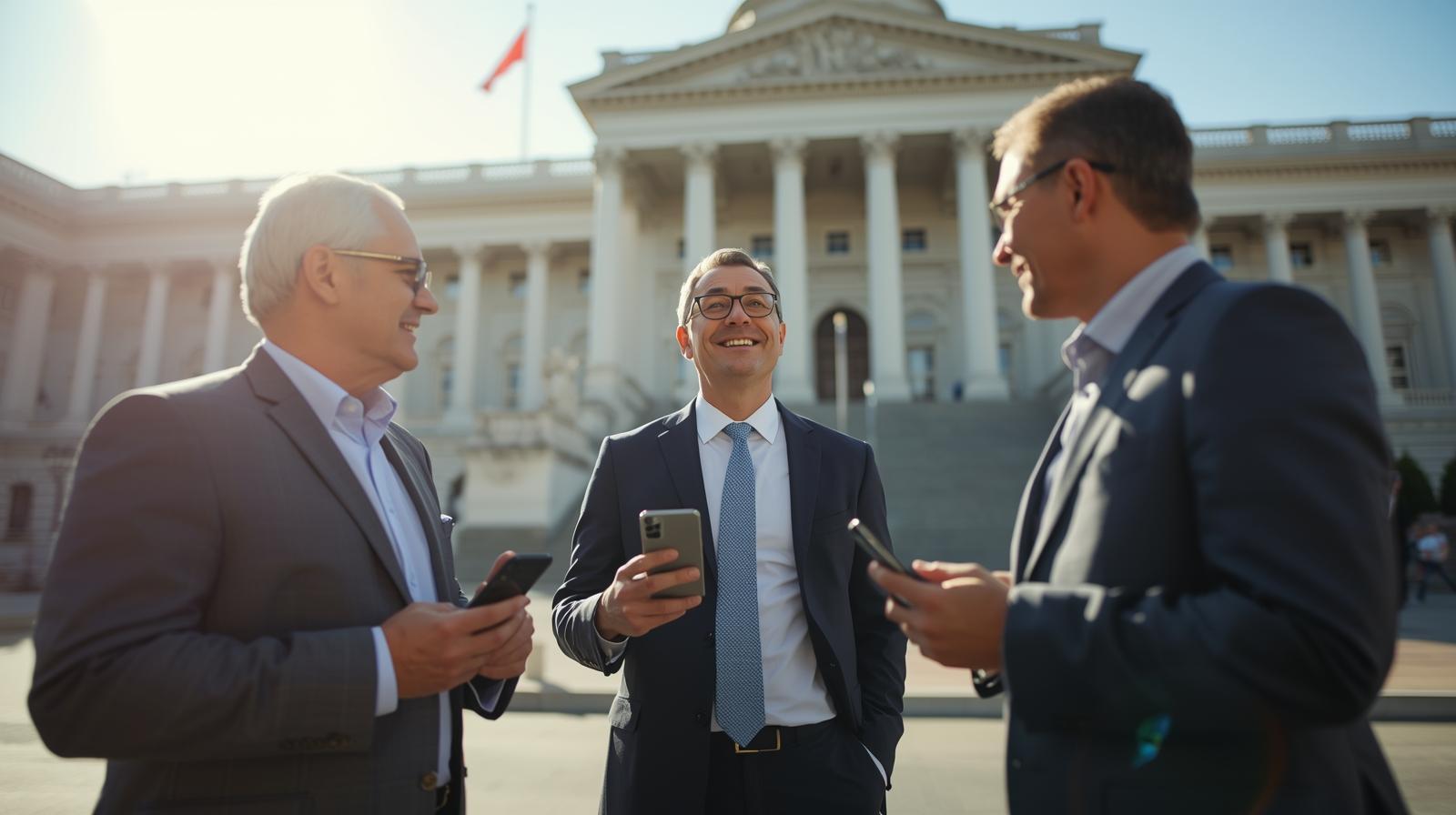
Governments are starting to adapt their perceptions of online gambling thanks to economic impact studies.
Policymakers focus on more contemporary frameworks regarding online gambling and assess the best Stake casino alternatives as economical state revenue contributors compared to legacy online casinos and brick-and-mortar casinos.
These stake alternatives are based on crypto-friendly and globally accessible frameworks, which compel regulators to reconsider the digital economy, including aspects such as taxation, licensing, and digital economic participation.
Stake-style alternatives rely on more efficient, economic, and digitally integrated models. Research confirms the economic models of such state licensing, as they moderate regulatory thresholds and encourage international market participation from gambling operators.
Vertical integration of traditional gambling and online gaming models results in more stringent regulations and approval processes.
These models leave regulators no other alternative but to push operators to offshore markets.
Regulatory mechanisms for online gaming and gambling are flexible and lenient, and economic models indicate that this structure produces optimal outcomes for state revenue.
Economic analysis reveals the distinct nature of blockchain as a payment layer. Current workflows cannot compare to the audit capabilities of blockchain.
If a government is willing to adopt new technologies, it can streamline the audit processes and cut costs while monitoring tax-relevant activities.
Digital gaming, as opposed to terrestrial gaming, does not create indirect costs for the government, such as the public investments needed in road construction, utilities, and law enforcement for gaming venues.
This is why economic impact analysis reports are able to assert that digital gaming brings a unique positive outcome to government budgets in a politically defensible manner.
Digital gaming does not create demand for hospitality jobs, as opposed to traditional gaming; it creates demand for high-tech roles, such as software engineering, cybersecurity, compliance, and payment.
States that have developed digital services and labor markets enjoy the high wage and sustainable growth benefits associated with digital gaming.
ALSO READ: How Political Events Could Drive Maxi Doge Adoption Among Gambling Enthusiasts
Digital gaming creates new markets for economic activity that cross the borders of states and nations. This revenue is often lost with terrestrial gaming.
With modern regulations, governments are able to tax revenue generated from abroad, which is a significant advantage of digital gaming when compared with terrestrial gaming.
Permitting other forms of modern casino alternatives is a political statement of economic innovation rather than social stagnation.
Policymakers can suggest that the new regulations are modernizations of the current system versus expansions of gambling. This is likely to be a more palatable argument to younger, tech-oriented voters.
Physical casinos in a city can lead to urban congestion, zoning problems, and other social issues. Stake alternatives completely sidestep these issues.
Studies show these types of locations generate more consistent economic activity and revenue without the political issues related to redeveloping urban centers.
Because digital gambling platforms save consumer behavioral data, states may make real-time adjustments to tax rates and consumer protections. This is the opposite of traditional gambling policies, which are more rigid and inflexible.
There are economic impact studies that show Stake offers more flexible revenue streams. As public finance relies more on digital activities, Stake and its competitors will be more aligned with the future than traditional casino alternatives.
Gambling is a sector that is changing fast at a high rate, owing to technological advancements and the changing perception of people. This expansion has come with a corresponding desire to have proper policies in place that balance the relationship of economic opportunity and consumer protection. The effective regulation will also provide that the activities that involve gambling will be beneficial to the economy. But will keep checks on problem gambling, fraud, and social damage.
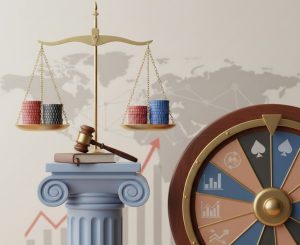
Government officials play a significant part in the design of the regulatory environment of gaming. Through the involvement of stakeholders, examination of existing practices, and adjustment to technological transformation. It includes online betting sites, and lawmakers can contribute to the establishment of effective systems that provide transparency and accountability.
The gambling industry provides a lot in the way of tax revenues, employment, and tourism. These economic benefits, however, have to be compared to the social costs of addiction and economic burden. The policymakers strive to create comprehensive policies that promote the development of the industry and fund responsible gaming activities and services to the people at risk.
The leaders of the population should promote responsible gambling systems that safeguard the weak in society. This involves the provision of clear disclosures, research backing on behavioral effects, as well as the availability of assistance on problem gambling. It is necessary to have collaborative activities between the lawmakers, the regulators, and the industry players. This is to come up with policies that are able to harmonize the economic aspects and the well-being of the people as well, while upholding ethical principles.
Proactive governance is needed in an industry where change is a constant factor, and the role of an economy can hardly be underrated. Considered policy-making can help create a successful gaming ecosystem that focuses on consumer protection and sustainability in the long term. With the adoption of a moderate regulation strategy, the government helps in resolving the interests of the community and in ensuring proper development of the industry.

Italy’s gambling market draws in over 100 billion euros yearly, a sum that fuels both excitement and concern. Picture the quiet hum of a Roman café where friends debate the latest lottery win, or the digital glow of a smartphone screen pulling someone deeper into slots. This blend of tradition and technology defines Italy’s relationship with games of chance. Yet, beneath the surface, a tension simmers. Self-exclusion programs, meant to shield players from harm, now spark fierce discussions in parliament halls and family dinners alike. These tools promise safety but raise questions about personal freedom in a land that cherishes choice.
The AAMS self-exclusion registry, launched in 2018, lets players step back from online betting for set periods or forever. Administered by the Agenzia delle Dogane e dei Monopoli (ADM), formerly AAMS, it blocks access across all licensed sites. For many, it’s a lifeline amid rising addiction rates, about 3% of Italians grapple with severe problem gambling. But what happens when regret creeps in? Players often seek to reverse their decision, leading straight to the heart of political debates. Cancel AAMS self-exclusion (annullare autoesclusione AAMS) emerges as a key phrase in these conversations, symbolizing the push for flexibility. Lawmakers weigh how much control the state should wield over a choice made in vulnerability. On one side, advocates for stricter rules argue that easy reversals could undo hard-won progress. Others counter that locking someone out indefinitely ignores human growth and the right to second chances.
Gambling weaves deep into Italy’s cultural fabric, from ancient Roman dice games to modern lotteries. The state stepped in decades ago to channel this passion into regulated channels, birthing AAMS in the 1990s. By 2018, as online platforms boomed, self-exclusion became a cornerstone of responsible play. Players can opt out for 30, 60, or 90 days, or indefinitely, with automatic reactivation for short terms. Indefinite bans, however, demand a six-month wait before revocation, a safeguard rooted in protecting the vulnerable.
Revocation isn’t a snap-of-the-fingers affair. For temporary exclusions, freedom returns quietly at term’s end. Permanent ones? Players submit requests with ID proofs, enduring that mandatory half-year pause to reflect. This delay, while protective, fuels frustration. Imagine a young Milanese who excluded in a haze of loss, only to find clarity months later, trapped by bureaucracy. For broader insights on maintaining control, explore responsible gambling practices that complement Italy’s self-exclusion framework.
“We can’t let fleeting regrets unravel lives,” thundered Senator Beatrice Lorenzin in a fiery debate, slamming reliance on gambling revenue as a “social disgrace.”
Italy’s fractured politics mirrors the push-pull over self-exclusion reversals. Right-leaning coalitions, eyeing gambling’s tax haul, nearly 585 million euros extra in recent budgets, lean toward lighter touch. They frame it as economic booster, warning that harsh rules drive players to black markets. Leftist voices and Catholic groups, however, paint addiction as a moral scourge, demanding ironclad barriers. “We can’t let fleeting regrets unravel lives,” thundered Senator Beatrice Lorenzin in a fiery debate, slamming reliance on gambling revenue as a “social disgrace.”
Freedom of choice dances at the debate’s core. Proponents of easier cancellations invoke Article 41 of the Constitution, guarding economic liberty. Why punish growth? A reformed player deserves to reengage responsibly. Critics retort: true freedom blooms from protection, not peril. Local mayors in Piedmont and Lombardy have tested tighter slots limits, only to clash with national overrides, highlighting Rome’s grip on “public order.”
Government oversight looms large, a watchful eye in the digital age. The 2024 Reorganisation Decree mandates 0.2% of revenues funneled to anti-addiction efforts, including self-exclusion tweaks. Yet, as the Dignity Decree’s ad ban faces repeal talks, politicians grapple: loosen for revenue, or tighten for welfare? “It’s a tightrope,” admits a Ministry official in hushed tones, “between guarding souls and filling coffers.”
Behind the bills beat human hearts. Take Luca, a Turin mechanic who self-excluded in 2022 after debts mounted. Six months felt eternal, but revocation brought cautious joy—and new limits he sets himself. Stories like his underscore the poetry of recovery: fragile, yet fierce.
Debates rage, but data whispers truths. Studies show self-exclusion cuts playtime by 40%, yet 20% seek reversal within a year. This duality, protection versus autonomy, mirrors Italy’s soul: passionate, principled, ever in flux.
As sun dips over the Colosseum, Italy ponders its gambling path. Recent rulings, like the 2025 strike-down of shop device bans, signal a thaw toward proportionality. Perhaps smarter tech (AI-flagged risks or tailored counseling) could ease revocation fears.
Responsible gambling thrives on nuance, not absolutes. Honoring the call to cancel AAMS self-exclusion means weaving choice with care, politics with compassion. In this eternal city of fountains and fortunes, may policies flow like the Tiber: steady, sustaining, alive with possibility. Players, lawmakers, families; they all deserve a game worth playing.

Gambling regulations often reflect a country’s political climate. Some governments impose strict measures to control betting activities, while others adopt a more lenient approach. The debate surrounding these laws is ongoing, especially with the rise of non GamStop casinos operating outside UK restrictions.
GamStop is a self-exclusion program designed to help UK players limit their gambling activities. Once registered, users are blocked from accessing licensed UK gambling sites. While the initiative promotes responsible gaming, it has sparked debates over personal freedom and regulatory reach.
Political parties and lawmakers hold differing views on gambling regulation. Some advocate tighter restrictions to protect vulnerable players, while others argue that adults should be free to choose where and how they gamble. This divide influences the future of gambling laws and how they adapt to an evolving industry.
Proponents of strict gambling laws believe that betting addiction is a public health concern. They support measures such as deposit limits, advertising restrictions, and self-exclusion programs like GamStop. For them, ensuring player safety outweighs the right to unrestricted access to gambling sites.
Opponents of heavy restrictions argue that players will find alternatives if access is limited. Non-GamStop casinos attract players who seek fewer restrictions, and banning them entirely is nearly impossible. Critics of strict regulations suggest that the government should focus on better consumer education and responsible gambling tools instead of outright bans.
Casinos outside GamStop’s network have become a significant part of gambling. These platforms operate under licenses from other jurisdictions, allowing UK players to bypass domestic restrictions. While they offer an alternative, they also raise concerns about player protection and regulatory oversight.
There are several reasons why players opt for offshore gambling sites. Some feel restricted by GamStop and want more control over their gaming choices. Higher betting limits, better bonuses, or a wider range of games draw others. These factors make non-GamStop casinos appealing to many UK players.
Because these casinos are licensed outside the UK, they do not follow UKGC (UK Gambling Commission) rules. This creates a regulatory gray area where player protection standards vary. Lawmakers face the challenge of balancing consumer freedom with adequate safeguards.
Given the popularity of non-GamStop casinos, some policymakers suggest reforms that accommodate player demands while ensuring responsible gambling practices. Possible changes include revising self-exclusion programs, allowing regulated offshore options, or creating hybrid systems where players have more control over their restrictions.
With technology advancing and gambling habits evolving, regulatory frameworks must adapt. The key question remains: should governments impose stricter control or allow players to make their own choices while providing safeguards? The ongoing political debate will shape the future of the industry.
Non-GamStop casinos play a crucial role in the gambling debate. While they provide an alternative for players seeking fewer restrictions, they challenge traditional regulatory models. As discussions continue, policymakers must balance regulation and personal freedom.
The temptation of easy money has always been strong, and corruption is more likely to occur when money is involved. The relationship between corrupt politicians and compulsive gamblers is really troubling.
Individuals can be led down a dangerous path by gambling addiction, which is defined by compulsive gambling despite unfavorable consequences. Substance abusers typically resort to drastic actions in their desperate attempt to regain lost ground. Corruption is one way that individuals in authority might show their desperation.
Opportunities for bribery and theft can arise as a result of the financial hardship that comes with gambling addiction. There is a risk that politicians will be persuaded to indulge their personal gambling addictions with public monies. Addicts are more easily swayed by others’ opinions and policies. The integrity of their decision-making could be compromised if they are pressured to favor particular gaming interests.
A multipronged strategy is necessary to address the association between gambling addiction and political corruption. Strict standards on the ethics of public officials, more public understanding of the risks of addiction, and strong regulations regarding gaming are all part of this.
In the end, the only way to stop this harmful collaboration is to promote an accountability and openness culture. Our political landscape can be liberated from the corrupting impact of gambling addiction if we acknowledge the risks and take precautions.
Gambling site ads are everywhere. The industry attracts customers with beautiful TV advertising and branded sports jerseys. Given this widespread exposure, the question of how much government control over media consumption arises.
Regulation is justified by protecting vulnerable groups. Visually appealing ads that downplay gambling addiction might worsen it. Imagine a young person bombarded with ads promoting gambling as a means to get rich or have fun. To protect vulnerable people from exploitation, the government might restrict ad targeting.
However, outright bans or excessive regulations might have unintended consequences. A underground market for gambling advertising could make responsible practices harder to regulate. A successful gambling industry generates tax revenue for social services. The key is to balance sector efficiency with vulnerable person protection.
Instead of reducing ads, regulate their content. If governments want responsible gambling messaging, advertising must warn of the risks and provide self-exclusion resources. This strategy promotes transparency and empowers customers to make informed decisions.
Gambling advertising is controversial. We must consider how to allow a legal sector to function while protecting the public. Responsible governments can use gambling advertising to educate, entertain, and protect vulnerable populations.
Lottery tickets are selling like hotcakes due to the incredible potential payouts. The game is more than just a game of luck for lottery commissions; it’s a delicate balancing act impacted by the constantly changing gaming policy landscape.
Fans of high-stakes gambling now have a whole new arena to explore with the rise of daily fantasy sports, online sportsbooks, and casinos. These alternatives can eat into the lottery’s customer base since they provide faster service and bigger prizes. There appears to be an inverse relationship, according to the research: lottery sales tend to fall in places where casinos are legal.
Another factor could be the various tax systems that apply to gambling. Governments may see lotteries with less enthusiasm as a potential source of income due to the higher tax rates that are often imposed on them in comparison to casinos. As a result, there may be calls for more frequent drawings or larger payouts in the lottery to attract more players.
Possibilities and threats are both posed by the proliferation of online lotteries. The ease and accessibility it provides could attract more players, on the one hand. Security, responsible gaming, and the threat of unregulated online gambling markets are all important issues that lawmakers should give serious thought to.
The lottery sector has a complicated connection with gaming policy. Although there are new ways to gamble, there are also new ways that the lottery might be challenged to innovate. In order to ensure that the lottery industry remains a viable source of money for charitable purposes, it is essential to develop well-rounded rules that tackle issues such as taxation, responsible gaming, and competitiveness.
The truth is that gambling money may play a big role in political fundraising, even though politicians and casinos seem like unusual bedfellows. Several inquiries are prompted by this. How much sway does this sum of money have, and where does it originate from?
 There is a strong regional concentration of casinos, which is a big economic force. They engage in heavy campaign contributions to safeguard their interests and impact policy. This can take many forms, including monetary donations to politicians and support for lobbying initiatives.
There is a strong regional concentration of casinos, which is a big economic force. They engage in heavy campaign contributions to safeguard their interests and impact policy. This can take many forms, including monetary donations to politicians and support for lobbying initiatives.
Some feel that politicians become too reliant on casino money as a result of these contributions. This might cause people to embrace casino-friendly policies regardless of the social costs, such as increased gambling addiction.
It is difficult to trace the precise impact of casino money due to the opaque nature of political financing. The confidence of the public in the political system can be diminished due to this opaqueness.
Gambling and politics have a complicated relationship. Casino money’s potential impact on elections is worrisome, even though there are campaign finance rules. Many countries still struggle with the problem of how to balance the casino industry’s financial interests with the necessity for honest and open elections.
The worlds of politics and gaming are a hazy place where the interests of profit and power meet. When the gambling business tries to sway policymakers in favor of itself, it frequently takes the form of political corruption.
Political corruption can take many different forms within the gaming sector. One common tactic is lobbying, in which large-scale gambling companies invest enormous amounts of money in political campaigns and projects to influence laws in their favor.

Bribery and kickbacks are forms of corruption in which politicians accept cash rewards or other benefits in return for treating gambling companies favorably.
There are extensive repercussions from political corruption in the gaming sector. First of all, it promotes an atmosphere of impunity in which large gambling corporations operate outside the law, dodging restrictions and taking advantage of legal openings in order to make money.
Furthermore, political corruption erodes the transparency and justice that characterize democracy. The democratic process is undermined, and the public voice is muted when elected officials put the interests of large donors ahead of the demands of their citizens.
In conclusion, political corruption is a worrying phenomenon that has arisen from the mingling of politics and the casino business. The influence of money in politics poses a serious threat to the integrity of governance and the welfare of society, ranging from lobbying activities to overt bribery.
Politics and gaming are intricately linked. Political parties’ views on casino gambling influence laws and public opinion. Just like casinos light up the night, politicians argue about gaming’s place in society.

Political groups have diverse opinions on casinos. Some support it because they think it would boost the economy by providing jobs and attracting tourists, but others worry about moral and social issues like addiction and criminality.
Casinos are often viewed as a significant contributor to local economies and a significant source of tax revenue. They think more tourists boost hospitality and entertainment. However, opponents of gaming worry about high addiction rates and public service strain.
The political-gambling relationship has two sides. Casino owners’ campaign contributions can sway political parties, raising concerns about gambling-related laws.
In conclusion, opinions on how to handle the complex relationship between politics and casino gambling remain diverse. Policymakers still struggle to balance profit and social good. People who seek open and responsible administration in a changing environment must understand political factions’ perspectives. Politics and casino gambling are still fascinating and influential in a world where dice are rolled and ballots are cast.
Politics is crucial to the ever-changing gambling industry. Tax policy is one area where these perspectives overlap. Gambling taxes help the government raise revenue and address social issues like addiction and responsible play. It explores the complex relationship between politicians and gambling tax legislation and how it affects business and society.

Gambling taxes are depending on revenue. Gambling taxes generate significant revenue for governments worldwide. Thus, MPs must balance making the greatest money with protecting their constituents. Political decisions in this sector can dramatically impact a nation’s economy.
Politics also helps promote good gaming. Government tax rules typically encourage corporations to donate to gambling addiction and related initiatives. Politicians debate the optimum balance between profit and social responsibility.

Casino owners know tax politics well. Tax rate changes can affect company profitability, which impacts their marketing and growth strategy.
Regulatory compliance and tax regulations often overlap. Due to political changes, the gaming industry must follow new laws. It makes labor harder for workers.
Gaming tax legislation and politics are intertwined. Politicians’ decisions impact the gaming industry and society. Policymakers continually struggle to balance profit and social considerations. Politics and gambling tax policies will involve winners and losers. The business will evolve this way.
The gaming industry is a shady hub of political power behind the scenes. Gambling regulation and political lobbying present an intriguing intersection of money, power, and interests, which we shall explore in this post.
The gambling business is a potent lobbying force due to its deep pockets. Casinos, online gambling sites, and other gaming businesses frequently use lobbyists to encourage favorable legislation. Their goals may include lowering taxes and regulations or advocating for the growth of gambling services.
Political decisions give rise to gambling laws. To protect consumers and reduce addiction, some lawmakers call for stringent regulation, while others argue for a more hands-off approach, placing greater value on individual freedom and economic expansion. This political struggle has real-world consequences for the way gaming is performed and regulated in any given country.

The increasing influence of lobbyists in politics raises moral concerns. Is the well-being of citizens being put second by lawmakers in favor of the profits of large casinos? Politicians face a difficult ethical conundrum when trying to strike a balance between the industry’s economic rewards and responsible regulation.
There is a mutually beneficial relationship between lobbying for new gambling laws and the political process. Gambling law develops as a result of lobbying efforts funded by the industry’s many players. It is still a difficult balancing act for legislators to promote economic progress while protecting citizens from harm. Remember that the rules controlling your activities are frequently delicately woven by the threads of political lobbying and regulation the next time you place a bet or enter a casino.
 Playing online lotteries can be an exhilarating and entertaining experience. However, it’s important to approach it with caution and implement effective risk management techniques. This article will explore valuable strategies for managing risk while playing Togel Online. By setting win and loss limits, utilizing stop-loss and stop-win strategies, and knowing when to walk away, you can enhance your chances of having a safe and enjoyable gaming session.
Playing online lotteries can be an exhilarating and entertaining experience. However, it’s important to approach it with caution and implement effective risk management techniques. This article will explore valuable strategies for managing risk while playing Togel Online. By setting win and loss limits, utilizing stop-loss and stop-win strategies, and knowing when to walk away, you can enhance your chances of having a safe and enjoyable gaming session.
Setting win and loss limits is crucial to ensure responsible gambling. By establishing these limits, you can better control your spending and minimize the risk of chasing losses or getting carried away by winning streaks.
Stop-loss and stop-win strategies effectively manage risk while playing online lotteries. These techniques enable you to safeguard your bankroll and avoid excessive losses or missed opportunities.
Recognizing when it’s time to walk away from a gaming session is an essential aspect of risk management in online lotteries. By being mindful of your mental and financial well-being, you can maintain a healthy and enjoyable gambling experience.
Risk management is vital in online lotteries, and by employing these techniques, you can enhance your gaming experience while protecting yourself from excessive losses. You take control of your gambling sessions by setting win and loss limits, implementing stop-loss and stop-win strategies, and knowing when to walk away. Remember, the key is to enjoy yourself responsibly and ensure that playing online lotteries remains a safe and entertaining pastime.
Legislators in Georgia are proposing proposals to legalize sports betting and horse racing without a change to the state constitution, claiming that these activities fall under the purview of the state lottery.
House Bill 380, which would exclusively permit sports betting, was introduced on Monday, February 13, 2023 by Watkinsville Republican Rep. Marcus. The House and Senate are pursuing separate routes. A Senate committee held a hearing on Senate Bill 57, which would specifically classify horse racing as a form of sports gambling, on Tuesday. Additionally, three horse racing venues with statewide betting would be permitted under that law, which was introduced by Statesboro Republican Senator Billy Hickman.
Under the House proposal 16 companies would receive sports betting licenses which includes The Georgia Lottery Corp., The Professional Golfers’ Association, and the Masters golf tournament. There would be seven licenses set aside for bookmakers like FanDuel and DraftKings.
Bets would only be accepted from persons who are physically present in the state and above 21. Operators of coin-operated amusement devices, which are often found in convenience stores, would also receive licenses.
With regard to sports betting, the Senate bill contains several elements that are identical. It would not, however, permit bookmakers to deduct credit for free bets offered to gamblers, in contrast to the House bill.
While it’s true that gambling and politics seem like a strange combination, there are actually a lot of similarities between the two activities.
The key distinction between the two is the types and risk levels. Both endeavors primarily focus on assessing, understanding, and controlling risk.
The risks in politics are numerous and vary across the entire political spectrum of social, environmental, and economic government. On the other hand, the risk in gambling is mostly economic, the fundamental procedure for reducing risk in both endeavors is the same.
Politicians must be aware of the risks involved in each given circumstance, be able to gauge the degree of risk there, and take steps to minimize that risk as much as possible.
The same applies to any sort of gambling that a player may choose to engage in.
The primary difference between the two is that politicians answer under public examination of the electorate, while most gamblers only have themselves to answer to.
Politicians who are subject to public examination by the electorate need to not only appear to be playing by the rules of the game (and so need to have a solid grasp of both parliamentary and legislative rules), but they also need to appear to be actively participating in the game
Gambling has been a concern since the beginning of the lottery. Individuals routinely gamble for the thrill of gambling their own income for a win. Several argue that betting is a negative thing, while others argue that it is a good thing, although it has actually created more issues than it has addressed. Individuals have forfeited their careers and much more cash in casinos than anyone could count. Most people focus on how criminality affects gambling rather than how politics and the economy affect gambling.

Gambling has risen to become among the greatest popular hobbies in the world in recent times. It was the year 1977. Apart from Nevada, the most state in the country prohibited casino gambling; however, as everyone’s need for amusement grew, states began to permit corporate gambling.
The gambling business devastates the economies of gaming cities. Gambling causes problems with children at home and encourages competent politicians into becoming corrupted.
Gambling’s adrenaline-fueled gives people the impression that opportunity is in their grasp. Unfortunately, gambling has way too many disadvantages to ever even start to list. To achieve, you have to play, and also to win large, you have to play big.
But the first thing to discuss is where you bet. It’s essential to always gamble with reliable websites. Reputable means ethical, reliable, and secure. Certainly, there is a variety of betting sites.
One of the most crucial pieces of political betting advice available. Always exercise caution while reading, watching, or hearing something in the media. Agendas abound. There is always spin. Americans’ opinions on their preferred news sources are divided along political lines.
In significant elections, you should base your political betting strategy on data instead of speculation. Adopt a comprehensive strategy rather than relying on Fox, CNN, or Facebook to predict the outcome of the upcoming US presidential election. Let the media do what it does. Study the hard data instead.
Political wagers are all mere props. Your time isn’t worth it for some of them. These days, you can wager on just about anything in politics. A couple of the most contentious events were the Brexit referendum and Trump’s election to the presidency. Both events occurred in 2016 and are regarded as two of the biggest political gambling surprises in memory.

The swift development of new online platforms has created areas for attracting political interests, with the 55five login being the gateway.
Daily users continue to increase, and politicians are beginning to view the platform as a digital social activity and a way to capture behavioral trends.
The 55five platform provides a digital community, and the economic and social activity of users coupled with their level of engagement is providing politicians with insights into digital social behavior, community economics, and cohort behavior.
55five has extended its service as a gaming platform. It has also become a zone for users to manage strategy, risk, and reward, and similar to activities in the real world, manage social behaviors.
This is a behavior that political analysts are beginning to take notice of. Closely observing user data provides insights into public sentiment, spending, and social interactions.
The continued popularity of 55five points to further entrenchment of the digital world into everyday life. Politicians are beginning to understand and value this.
Perhaps the most significant reason to consider the youth demographic of the platform is to help us understand policymakers.
Young adults actively participate on 55five and give us insight into their values, purchasing behaviors, and level of civic engagement.
Young users also catalyze policymakers to address civic engagement.
This also raises issues of digital literacy, the game of civic engagement, and the influence of digital entertainment on the civic engagement decisions of young adults.
In addition to engagement and demographics, 55five helps understand users’ economic behaviors in the digital world.
Users frequently make small decisions that impact the economy, and this is reflected in their larger-scale economic behaviors.
The small digital economic decisions users make are of interest to economists and policymakers in relation to consumer behavior, digital finance, and policies concerning digital economic behaviors.
Understanding these economic behaviors will help policymakers in creating a safe space for digital economic engagement.
ALSO READ: How Political Events Could Drive Maxi Doge Adoption Among Gambling Enthusiasts
The stars with 55five include the realm of public policy as well.
The possible effects of digital platforms on consumers’ spending decisions, digital behaviors, and social interactions are key concerns for policymakers and regulators.
For example, 55five helps policymakers and legislators understand and shape the emerging digital environment.
From the perspective of policymakers and regulators, the simultaneous use of 55five by many people is important for analyzing the social structure of the digitally connected world.
The effects of 55five will eventually go beyond leisure time.
It provides an important case study for participants in politics, economics, and the digital world to observe phenomena related to the public, the economy, and digital behavior.
Regulations and policies created to govern the digital world will best serve today’s society if they incorporate the lessons derived from platforms like 55five.
Political decisions have long played a decisive role in shaping financial markets, and the betting industry is no exception. As online sports betting and online casino platforms like Bateu bet expand across global markets, government actions increasingly determine how these markets operate, who may participate, and under what conditions.
Understanding this relationship is essential for bettors, operators, and regulators seeking stability and transparency in an industry defined by rapid change. The influence of political decision-making becomes particularly evident when examining how policy shifts affect market confidence, platform legitimacy, and long-term industry growth.
Political decisions directly define the legal, economic, and regulatory framework within which betting market function. Changes in leadership, parliamentary votes, or national elections often bring revised positions on gambling legalization, taxation, and consumer protection.
These shifts can produce immediate effects on betting odds, market availability, and investor sentiment.
In jurisdictions where gambling policy is actively debated, even proposed legislation may generate uncertainty, influencing both short-term betting behavior and long-term strategic planning by operators.
Within this regulatory environment, Bateu Bet shows how online gambling platforms must operate under consistent political scrutiny.
Legitimacy is closely linked to compliance with evolving laws, secure payment systems, and transparent operational standards. As governments introduce new rules or enforcement mechanisms.
Any websites operating in this industry must continuously align with updated requirements to preserve trust and market credibility.

Legislation determines where betting markets can legally exist and who is permitted to participate.
Some governments adopt progressive regulatory frameworks that encourage competition and innovation, while others impose restrictions that limit or prohibit certain forms of betting. These differences create uneven global markets, where user experiences vary significantly by jurisdiction.
As a result, operators must adapt offerings to local legal standards while maintaining competitive appeal within regulated environments.
Political shifts require both bettors and operators to respond quickly. Bettors may gravitate toward regulated platforms, explore alternative betting markets, or focus on sports less affected by policy changes.
Operators, meanwhile, invest heavily in compliance infrastructure, legal expertise, and adaptive technology to anticipate and respond to regulatory developments.
In politically dynamic regions, adaptability becomes a critical factor in sustaining operations and protecting market position.
Licensing structures and taxation policies represent some of the most influential political tools shaping betting markets. Higher tax rates can compress operator margins, potentially affecting odds, promotions, and market competitiveness. Conversely, transparent and consistent licensing frameworks enhance credibility, attract international participation, and encourage long-term investment.
Political decision-making will continue to drive change across betting markets as governments respond to economic pressures, technological advancement, and social responsibility concerns.
Increased focus on responsible gambling, digital security, and consumer protection is likely to intensify regulatory oversight. For Bateu bet and similar online gambling sites, maintaining compliance, transparency, and legitimacy will remain central to sustainable growth. Ultimately, understanding political influence equips stakeholders to navigate uncertainty while supporting a more stable, trustworthy, and regulated betting ecosystem.
Online gambling has experienced remarkable growth in recent years, and 161 Bet has been at the forefront, offering convenient, engaging, and accessible experiences. Today, players can place bets on casino games or sports events from the comfort of their homes, reflecting a global shift in entertainment preferences.
This rise is not solely recreational, political decisions, regulatory frameworks, and government policies play a role in determining how online gambling expands. Understanding the connection between politics and gambling is essential for both players and policymakers alike.

There have been several factors at play that contributed to the growth of online gambling. Technological advancements have made platforms more accessible, allowing users to play on mobile devices, tablets, and computers.
Sites like 161 Bet provide intuitive interfaces, live streaming options, and secure payment systems, fostering user trust and engagement. At the same time, societal attitudes toward gambling are evolving, with more people seeing it as a legitimate form of entertainment. Governments are recognizing this shift, introducing policies that encourage regulated growth rather than pushing gambling underground.
Together, these developments have accelerated the popularity of online betting.
A major political motivation for legalizing online gambling is the potential for significant government revenue. Through licensing fees, taxes on winnings, and regulatory compliance, 161 Bet and similar services contribute millions to public budgets annually.
These funds can be reinvested into social programs, infrastructure projects, and public services, creating tangible societal benefits.
Legalization also enhances transparency and reduces the risks linked to illegal betting markets, making online gambling not just profitable for businesses but also an important economic tool for governments seeking diversified revenue streams.
Legalized online gambling also has a notable impact on employment. These businesses require professionals across various fields, including:
The sector also stimulates indirect employment in related industries, such as financial services, media, and IT infrastructure.
By permitting online betting, governments influence job markets and promote skill development, showing how political decisions affect both leisure and economic livelihoods.
The demand for secure, efficient, and engaging platforms has fueled innovation in the online gambling sector. Many online gambling sites have invested in advanced algorithms, real-time analytics, and AI-driven features to enhance player experiences. Political support through regulation and digital infrastructure development encourages this technological progress, benefiting not only gambling but also broader digital services.
These advancements create opportunities in cybersecurity, app development, and financial technology, illustrating the relationship between politics, technology, and entertainment.
The link between politics and online gambling highlights how regulatory decisions drive economic growth, technological innovation, and employment opportunities. Websites like 161 Bet are more than entertainment hubs. They reflect broader societal and political trends that shape the digital gambling landscape.
As legalization spreads and technology evolves, political influence will remain a key factor in the sector’s growth, sustainability, and long-term success.
The expansion of digital betting has brought platforms such as 7games Bet into broader public discussions surrounding regulation, governance, and economic priorities. As online casinos and sports betting platforms become more accessible, governments face increasing pressure to balance public interest, revenue generation, and social responsibility. Regulated betting platforms often represent how gambling can operate within legal frameworks while contributing to national economic systems.
Understanding the political relationship between gambling platforms and government oversight explains why legalization continues to expand across many regions. Rather than viewing gambling solely as entertainment, policymakers increasingly treat it as a regulated economic activity requiring structured control and accountability.
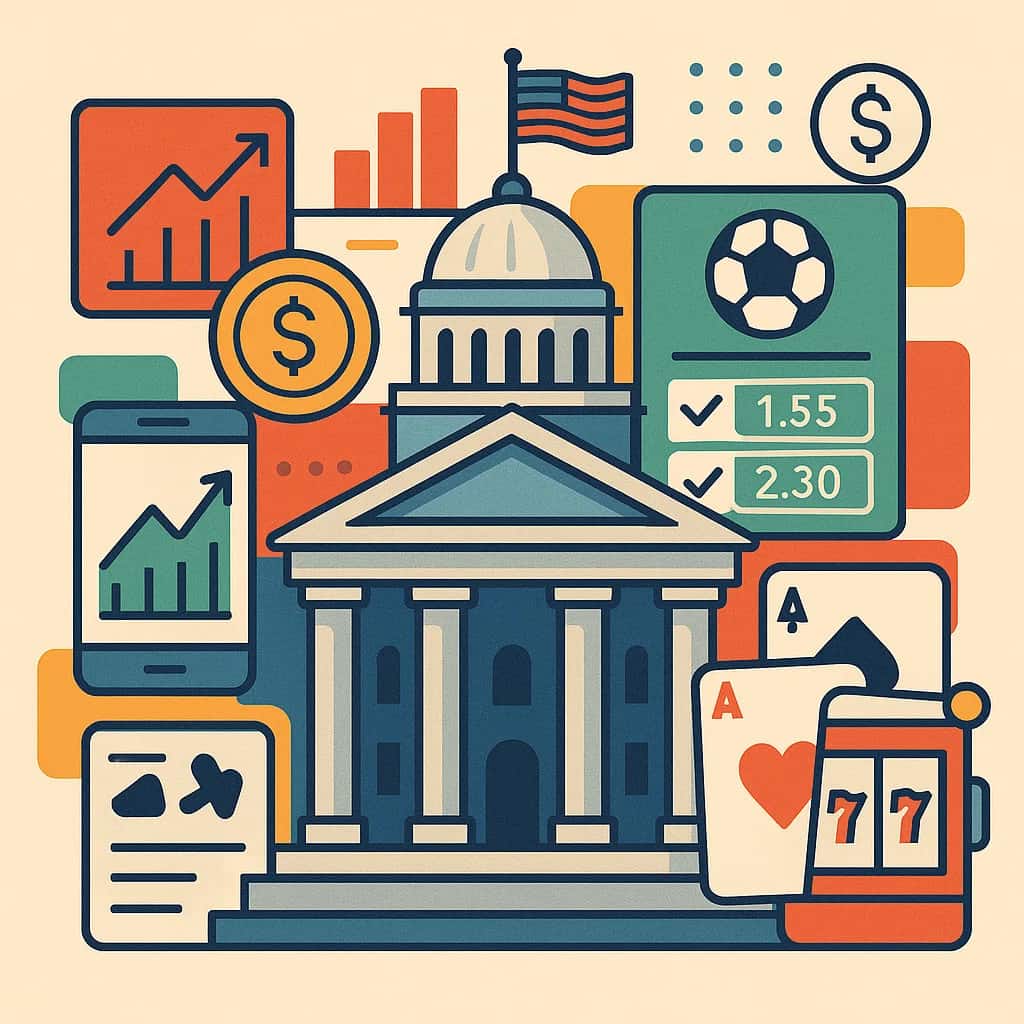
Governments legalize gambling primarily to establish regulatory authority over an activity that often exists regardless of prohibition. By creating legal frameworks, policymakers can monitor operations, enforce consumer protections, and reduce the influence of unregulated markets. Regulation also allows authorities to mandate standards for transparency, responsible gaming, and fair play. All these are factors that difficult to enforce in illegal environments.
From a governance perspective, legalization reflects a pragmatic response to public demand. Instead of attempting to eliminate gambling entirely, political systems focus on managing risk while maintaining oversight and public accountability.
Regulated platforms such as 7games Bet illustrate how political decisions translate into structured economic participation. Once legalized, online gambling operators are subject to licensing requirements, compliance audits, and taxation policies that integrate them into national revenue systems. These mechanisms transform gambling from a private activity into a measurable economic sector.
Tax revenues generated from licensed platforms are commonly allocated to public services, including infrastructure development, healthcare funding, and educational programs. This fiscal contribution reinforces political support for regulated gambling, positioning it as a controlled revenue source rather than a purely social concern.
Legal gambling policies also influence employment growth across multiple industries. In addition to frontline customer support roles, regulated platforms require professionals in software development, cybersecurity, compliance, marketing, and data analytics.
Political authorization of gambling operations allows these roles to exist within stable, licensed business environments.
Employment generation is often emphasized in policy discussions, particularly in regions seeking economic diversification. By formalizing the gambling sector, governments can demonstrate tangible workforce benefits while retaining regulatory control.
Beyond employment, legal gambling contributes to tourism and broader entertainment ecosystems. Betting platforms, casinos, and associated digital services often integrate with hospitality, sporting events, and media industries, expanding their economic reach.
From a political standpoint, tourism development enhances national branding and attracts foreign investment. These long-term economic benefits explain why gambling legislation is frequently tied to broader development strategies rather than treated as an isolated policy issue.
The relationship between politics and gambling reflects deliberate policy planning rather than incidental decision-making. Platforms like 7games Bet operate within regulatory systems shaped by economic goals. As governments continue refining gambling legislation, the focus remains on balancing public welfare with financial sustainability.
Viewing gambling through a political and economic perspective allows readers to understand it not only as a form of entertainment, but as a regulated instrument shaped by governance, oversight, and long-term national interests.

Online slots have become a popular form of entertainment worldwide. Many players try out games without spending real money through demo versions. These demo slots allow players to explore features, understand pay lines, and enjoy gameplay risk-free. Despite being free, demo slots fall under specific legal frameworks, and their availability often depends on local gambling regulations and political decisions.
Some websites offer a slot PG demo that provides a safe environment for new players to practice. These demo games are legally different from real money slots because they do not involve wagering actual money. However, governments and regulators still monitor them to ensure ethical use and prevent promotion of illegal gambling activities. Offering demos responsibly is a priority for most licensed operators, and players benefit from understanding which sites comply with regulations.
Demo slots are generally classified as non-gambling software. Since no real money changes hands, they are considered a form of entertainment rather than gambling. This distinction is important because many countries have strict laws governing online gambling. Regulators focus on protecting consumers from financial risk, ensuring that operators follow licensing requirements, and preventing underage access.
Despite being legal, the distribution of demo slots can be influenced by local laws. In some regions, even free versions of gambling games are restricted if they closely resemble real money games. Governments may impose age verification measures or limit access to certain online platforms. These rules aim to prevent exposure to gambling for minors and vulnerable populations while still allowing adults to enjoy the entertainment safely.
Political choices often impact how accessible demo slots are online. Lawmakers may adjust policies to support local gaming industries, protect consumers, or generate tax revenue. Changes in legislation can make certain slot games unavailable in some countries while freely accessible in others. Operators must adapt quickly to remain compliant, which affects how players experience online slot offerings. This is why understanding the political influence on gambling regulations can help players navigate the evolving landscape.
Debates over gambling regulations can affect the expansion of online slot platforms. Some governments encourage gambling tourism and online entertainment, making demo slots widely available. Others take a more conservative approach, imposing strict access restrictions and limiting marketing efforts. Players who enjoy demo slots must stay informed about the rules in their country to avoid accidentally accessing content that might be restricted or unlicensed.
Even without real money stakes, demo slots can teach responsible gaming habits. They allow players to experiment with strategies, understand volatility, and manage their expectations before spending money. This educational aspect is important because it helps reduce impulsive gambling behavior when transitioning to real money games.
Operators often integrate educational tools into demo slots. Pop-ups or tutorials may explain odds, payout percentages, and responsible gambling guidelines. These measures ensure that players treat demo slots as practice and entertainment, not a shortcut to earning money. Understanding these elements can help gamblers make informed choices and avoid financial pitfalls when moving to live games.
Demo slots occupy a unique legal space in online gaming. While they do not involve real money, regulations and political decisions shape their availability and usage. A slot PG demo provides a legal and safe way for players to enjoy slots while learning strategies, but staying aware of local laws remains essential. Understanding the rules ensures a fun and secure experience, bridging the gap between free play and real money gambling.
Players should embrace demo slots responsibly and always check regulatory compliance. These games offer a risk-free learning environment, helping players prepare for real stakes while staying within the bounds of the law.
Legalized gambling is somehow a blessing for both governments and communities. A blessing as this offers economic benefits like jobs and tax revenue. But it comes at a social price where consequences lies ahead including addiction, crime, and bankruptcy. Juggling these two is a tightrope walk that requires planning and control.
Supporters of gambling liberalization emphasize the economic benefits. They say a controlled industry is a great driver of economic growth. A new casino or legal online betting market can generate jobs from dealers and security guards to marketing and IT specialists. Gambling tax revenue can be a major source of revenue for a state or local government. This money goes towards things like schools and roads. This can make the community better for everyone.
But the social costs of gambling are high and hard to quantify. The biggest worry is problem gambling which can result in bankruptcy crime and broken families. These problems strain social services law enforcement and the health care system. Critics also argue that gambling tends to extract money from local people rather than attracting new money from outside the area. It can take business away from other local businesses.
Liberalizing gambling is a choice about what a community values. It’s money vs. people. With tight rules and funding responsible betting programs governments can level the playing field. Planning is required to ensure that the economic benefits are not too expensive.
Political factions have different views on the idea of opening gambling markets, which is a big issue. People think it’s either a way to make money, or not because of moral or social grounds. Governments have to find a balance between making money and being socially responsible, which makes the discussion more complicated and often acrimonious.
Political parties that lean to the left or center-right generally look at gambling from an economic point of view. Supporters say that a market that is licensed and controlled can bring in a lot of tax money and create jobs. They think that letting private businesses run with government monitoring can make the industry busier, which will bring in more tourists and keep money in the country. They typically point to the experiences of Sweden and Denmark as proof that a more competitive system may work while still protecting consumers.
On the other end of the spectrum are political groups that are more social democratic or have a populist agenda. They usually put social welfare and public health first. These groups say that gambling is a public health problem that hits weak populations harder than others. They might push for a state monopoly on gambling to make sure that all the money made goes to public services and to have more control over the market. To stop compulsive gambling, they generally campaign for things like restrictions on advertising and severe limitations on betting. These groups think that the societal costs of gambling are more than any possible economic benefits.
The argument about making gambling more open is a small part of a bigger political fight. It puts social duty against economic prosperity. Political parties don’t all have the same views, and they might be very different from one country to the next. As technology continues to make national borders less clear, this problem will continue to be a complicated and changing one for governments all around the world.
Casinos without UK license have steadily attracted players seeking alternative platforms with fewer restrictions. These operators often offer a wider range of games, flexible payment methods, and enticing rewards that may not be accessible within UK-regulated environments. For many users, the appeal lies in exploring international platforms that provide greater choice and autonomy.
While this trend continues to grow, it is essential to examine the external forces shaping the industry, particularly how political decisions and regulatory measures are influencing the future of online gambling worldwide.
Politics has always played a central role in shaping gambling laws, reflecting the balance between public interest and economic priorities. Governments often impose restrictions not only to safeguard players from harmful practices but also to regulate tax revenues, ensure fair play, and maintain broader oversight of the industry.
In recent years, debates on gambling regulation have intensified, with policymakers facing pressure to encourage innovation and economic growth while addressing the social costs of problem gambling, addiction, and financial harm.
As a result, regulatory frameworks are becoming more complex, with greater emphasis on responsible gambling measures, advertising limits, and consumer protection.
Different regions are taking varied approaches to online gambling regulation, reflecting diverse cultural attitudes, economic priorities, and political landscapes. Some countries are opening their markets with licensing frameworks designed to attract international operators, stimulate competition, and generate tax revenue. Others, however, are tightening restrictions to limit access, citing concerns over addiction, financial harm, or cultural values that discourage gambling.
These political shifts create ripple effects across the industry, shaping investment strategies, advertising practices, and ultimately influencing where and how players can participate in online betting. Over time, these contrasting approaches may lead to a fragmented global market, where opportunities and risks differ significantly by region.
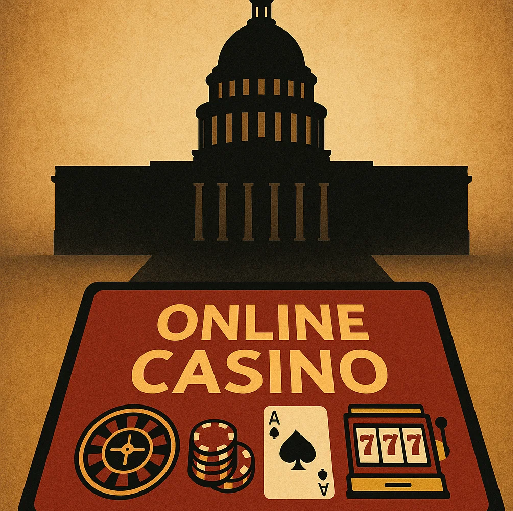
The gambling industry itself is an active player in shaping policy, often leveraging its economic influence to sway regulatory outcomes. Through lobbying efforts, industry groups, and international organizations, operators push for more flexible frameworks that enable innovation, cross-border market expansion, and increased profitability. At the same time, advocacy groups, public health organizations, and community stakeholders call for stricter rules. It’s aimed at protecting vulnerable individuals, reducing problem gambling, and limiting aggressive advertising.
This creates a delicate balancing act for lawmakers, who must weigh economic opportunities against social responsibility while responding to competing pressures from powerful industry players and concerned citizen groups.
As politics continues to intersect with technology and culture, online gambling regulations are likely to evolve in increasingly dynamic ways. Stricter frameworks may emerge in response to public concerns over addiction, underage access, and aggressive marketing. Thus, reflecting the growing demand for consumer protection and ethical oversight.
At the same time, opportunities for innovation, digital integration, and global collaboration will expand, as platforms experiment with new technologies such as blockchain, AI-driven safeguards, and cross-border partnerships. The central challenge for governments will be finding an equilibrium. Created policies should be focused on protecting players and enable sustainable industry growth. At the same time, new guidelines should not restrict innovation or generate loopholes that can be exploited.
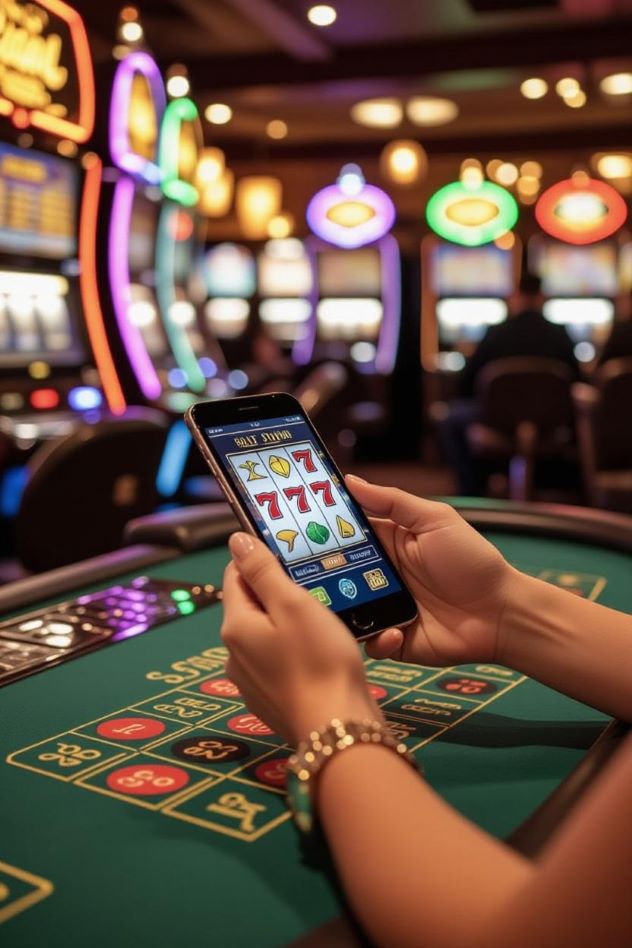 Malaysia bans most forms of gambling under laws from 1953. These rules stem from the Betting Act and Common Gaming Houses Act. They clash with Sharia law for Muslims, who make up over 60% of the population. Yet, the online casino world thrives in shadows. Platforms pull in players despite the risks. This creates a quiet battle between old rules and new tech. Southeast Asia feels this pull too. Countries nearby show different paths. Some embrace casinos. Others fight them hard.
Malaysia bans most forms of gambling under laws from 1953. These rules stem from the Betting Act and Common Gaming Houses Act. They clash with Sharia law for Muslims, who make up over 60% of the population. Yet, the online casino world thrives in shadows. Platforms pull in players despite the risks. This creates a quiet battle between old rules and new tech. Southeast Asia feels this pull too. Countries nearby show different paths. Some embrace casinos. Others fight them hard.
Platforms such as 26Myr spotlight this clash in Malaysia. They offer games from big names like Pragmatic Play. Users chase thrills from home. But strict laws push everything offshore. No local licenses exist for online spots. So, sites base in places like the Philippines or Curacao. This setup dodges Malaysian blocks. Still, police raid and fine. From 2021 to 2025, they blocked over 4,000 sites. Yet, the market grows. Why? Easy access via apps and VPNs. Players seek fun and wins. Operators promise safety and big payouts. In this mix, pragmatic play bonus Malaysia draws eyes. It adds extra spins and cash to start. Such perks fuel the underground boom.
Government eyes gambling as a social ill. Leaders worry about addiction and crime. Sharia courts handle cases for Muslims. Fines reach RM100,000 now. Jail time starts at six months. These tough steps aim to protect families. But enforcement lags behind tech. Police call for updates. In 2025, they pushed 12 changes to laws. These would cover digital bets. Block sites faster. Use AI to spot scams. Still, no full reform yet. Conservative wins in 2022 slowed talks. Parti Islam Se-Malaysia pushes back. They see any loosen as a threat to values.
This rigidity sparks underground growth. Offshore sites fill the gap. They license abroad. Accept ringgit. Offer local games. Tension builds as revenue slips away. Billions flow out yearly. Governments lose taxes. Crime ties in too. Scams and trafficking link to some ops. A UN report in 2024 warned of this. Losses hit $37 billion in Asia. Southeast spots like Cambodia saw crackdowns. Philippines banned POGOs in 2024. Malaysia watches close.
Pragmatic Play leads as a global force. From Gibraltar, it crafts slots and live games. Titles like Gates of Olympus thrill users. High RTP rates build trust. In Malaysia, demand surges. But no direct entry. Partners like 26Myr host them. These platforms run from safe havens. They promise fair play. Audits back claims. Players love the ease. Mobile apps fit busy lives. Yet, risks linger. Site blocks happen. Funds freeze sometimes.
“Online gambling poses severe risks to countries and the region,” notes a CSIS report. It highlights lax rules and crime flows.
Licensing shapes the game. Offshore spots get nods from PAGCOR in Philippines. Or Curacao bodies. These ensure standards. But Malaysian access stays gray. No player prosecutions yet. Focus hits syndicates. Police busted rings in 2025. Seized millions. Still, the pull endures. Why fight when wins tempt? Operators adapt. Use crypto. Hide servers. This cat-and-mouse game defines the politics.
Decisions from leaders sway the industry. In Thailand, a 2025 draft allows casinos. But limits locals. High fees keep most out. Aims to boost tourism. Singapore runs two tight spots. Marina Bay Sands shines. Strict caps curb harms. Contrast Malaysia’s full ban. It drives play abroad. Regional talks grow. ASEAN met in 2025. Pledged to fight illegal ops. China offers aid. Targets cross-border crime.
Balance eludes easy grasp. Economic gains tempt. Jobs and revenue call. Yet, social costs weigh heavy. Addictions rise. Families break. Politicians debate. Some push licenses. Others hold firm. In Malaysia, change brews slow. 2025 saw police pleas for modern laws. Terms like “online gambling” need add. Courts struggle now. Cases drop for lack of fit.
READ ALSO: Ways the Government is Trying to Stop Problem Gambling
The underground market expands despite hurdles. Platforms evolve. AI spots cheats. But syndicates use it too. Deepfakes scam more. UN warns of shifts. To spots like East Timor. Malaysia must act. Update laws. Or lose control. Players seek safe fun. Operators chase profits. Politics decides the path.
In the end, online casinos like Pragmatic Play mirror deep divides. Strict bans in Malaysia fuel offshore booms. Sites such as 26Myr thrive on this edge. Pragmatic play bonus Malaysia lures with promise. Yet, reform calls grow. Will leaders bend? Or hold the line? The story unfolds. One spin at a time. It whispers of change. In a region rich with contrast.
The idea of building a new casino can be hard to understand. When people promise that additional jobs and economic growth will come, the local community frequently strongly opposes it. This is a classic case of wanting to make money but being afraid of the societal implications. People who live and work there have real worries that go beyond just disagreeing about entertainment.
Fear of a bad social effect is a big reason why people in the community are against it. People living in the region are worried for a casino to make crime rates go up. Many people thinks about the increasing addiction in gambling, among populations that are more likely to be affected, like the elderly and people with low incomes. Some people are worried that it will bring more traffic and noise, which they regard as a big threat to their quality of life.
People who are against it also have big doubts about the economic benefits that developers often claim. Critics say that the jobs that are produced are frequently low-paying service jobs that don’t do anything to help the local economy. People are afraid of economic cannibalization, this is when a casino’s restaurants and entertainment facilities took a business away from local eateries and stores. This can push small businesses out of the area and undermine the economy of the neighborhood. The tax money that was promised often doesn’t cover the social costs.
People in the community are against new casinos because they have real social and economic concerns. There is a real conflict between creating jobs and the possibility of more crime, addiction, and traffic. Developers need to be clear and honest about these kind of problems once they want a new casino to do well. The only way to make sure that a development is really good for everyone and will last is to build trust with the people who live there.
![]()
Forecasting outcomes in prediction markets has always been linked to political seasons, and now, projects in the cryptocurrency world are beginning to tap into that same excitement.
Maxi Doge is surfacing as a community token driven by meme coins with high-risk and high-reward appeal. It could potentially be connected to political bets, which could appeal to gambling enthusiasts.
The combination of politically hot and crypto “hype-train” speculative markets creates a perfect storm for tokens that thrive on speculation, community, and gamification.
Political betting has taken off in the last ten years, with bettors now placing bets on everything from national elections and parliamentary votes to even policies.
These bets have mostly taken place on centralized betting platforms or through informal pools. There is now a new path for decentralization and anonymity, along with instant payments: cryptocurrency.
Politically themed gambling, on the other hand, could translate into blockchain through meme tokens that give the community a strong sense of belonging.
Maxi Doge is the perfect example since it is a speculative currency that captures attention in a fun way.
Political events and debates are headline news and captivate the attention of the public and social media users. Meme and community tokens soar during these periods and attract speculators who trade on instant capture return on investment.
Political bettors are increasingly utilizing prediction markets, which are gradually shifting toward decentralization. Crypto tokens can penetrate these markets, developing opportunities for staking and earning through participation during political events.
Unlike the traditional forms of political betting, blockchain alternatives do not face geographic restrictions, and so all participants can engage freely.
This is beneficial to bettors from jurisdictions with restrictive and regulated political wagering markets.
Speculation, especially the politically driven one, is extremely easy to come by. A community memetic token gains from all types of market participation, and traders who wish to ‘take a gamble’ on something during trend market-volatile periods are more than welcome.
Political bettors are very active online, which is a crucial requirement for the meme coin industry to thrive. People come together for a shared cause through humor and prediction games coupled with real-time interaction.
This shared experience is the emotional appeal of election night betting.
ALSO READ: 6 Ways Gambling in Soccer Broadcasts Mirrors the Political Climate
The integration of cryptocurrency with gambling is more than just speculation. Community-driven tokens can gamify the experience by rewarding holders who partake in prediction markets of politics and social contests or who engage in staking competitions.
Developers can create incentive-based campaigns to stimulate participation during political events. For instance, holders can be incentivized to predict elections or participate in themed challenges and contests.
This kind of betting gamification maintains the enjoyment and token adoption.
The intersection of political events and the adoption of cryptocurrency is not mere hype. The more decentralized markets grow, the more bettors will seek out flexible and engaging ways to partake in speculative bets.
Meme tokens that feature strong communities and the potential for virality can stake a claim in the political betting landscape.
This sets the stage for these tokens to pair political buzz with DeFi mechanics, creating a one-of-a-kind cocktail of entertainment, active involvement, and profit potential.
Provided developers create ecosystems that incentivize participation while upholding robust security and transparency, gambling enthusiasts will have endless new reasons to dive into novel innovations.
As with any significant political occurrence in modern history, it is all but unavoidable for reasoned or unreasoned prediction to ride the wave of speculation, and in equal measure, the recent surge of cryptocurrency serves as the perfect additional stimulus to the fire.
Tokens that attract community buzz and sync with the beats of political wagering have a chance of flourishing in this ecosystem.
This trend demonstrates the extent to which decentralized ecosystems will soon be integrated into the decentralized world of gambling.
As more people gamble online and at amusement parks, it is becoming more vital for governments to deal with the problems that come up. Gambling can help the economy by bringing in money, but the costs to society of addiction, such shattered relationships and increasing mental health problems, can’t be ignored.
Making explicit rules that prevent too much exposure is an important aspect of decreasing the harm caused by gaming. More and more, there are rules against advertising that targets weak groups or promises things that aren’t possible. Governments now typically have betting companies put up signs that are easy to see that explain the risks of gaming. At the same time, public education efforts, which are typically run in cooperation with health agencies, try to teach people about warning signals and where to get help. People can choose to leave gaming locations on their own terms through self-exclusion programs. These programs are generally required or supported by law.
Governments often pay for recovery and support networks including hotlines, counseling, and treatment centers. A lot of people utilize the money they make from gambling taxes to pay for programs and studies that will help stop more gambling in the future. Research helps us understand how technology changes the way people gamble and makes sure that laws keep up to date.
Regulation alone won’t solve the problem of gaming. Governments are making things safer for everyone by giving people the correct balance of education, support, and research.
The internet era has blurring of borders, hence cross-border gaming is both a profitable yet challenging field. Unquestionably, the excitement of international wagering is great, but it also provides perfect ground for tax avoidance, therefore affecting national economies and skeering fair play. The game of hide-and-seek with tax authorities is high stakes.
Tax authorities are challenged when unregulated offshore gaming platforms are used to hide gains and evade domestic taxes. Complex Financial Transactions: This generates complexity by using sophisticated financial transactions to hide fund flow and elude detection. Common strategy is underreporting or failing to document winnings from foreign gaming operations. Multinational gaming firms using transfer pricing manipulation—that is, moving profits to low-tax jurisdictions—have legal advantage. Lack of International Cooperation: Inconsistent tax laws and restricted data exchange across nations compromise efficient enforcement, therefore generating a worldwide problem.
Strengthening international collaboration and data sharing to monitor cross-border gaming transactions, hence improving tracking. Stricher rules implemented on offshore gaming platforms and financial transactions help to discourage them. Technology solutions are added by using advanced analytics and artificial intelligence to find possible tax evasion and spot unusual financial trends. More frequent and exhaustive audits of gaming operators and high-stakes players help to improve control. Strong financial penalties and legal consequences imposed for tax evasion offences help to discourage tax evasion behaviour.
While convenient and exciting, cross-border gaming poses a major problem for tax authorities globally. Strong international collaboration, modern technology, and strict rules are therefore absolutely vital to fight tax evasion and guarantee a fair playing field for everybody.
 Football grips Indonesia like a fever, with millions glued to screens or packing stadiums to cheer their teams. Yet, the thrill of the game often spills into betting, a practice that remains illegal under the country’s strict laws. As political winds shift and elections loom, the question arises: could politics reshape the legal landscape of football betting in Indonesia? The interplay between governance, cultural values, and public demand creates a complex debate, with voices pushing for regulation and others demanding tighter bans.
Football grips Indonesia like a fever, with millions glued to screens or packing stadiums to cheer their teams. Yet, the thrill of the game often spills into betting, a practice that remains illegal under the country’s strict laws. As political winds shift and elections loom, the question arises: could politics reshape the legal landscape of football betting in Indonesia? The interplay between governance, cultural values, and public demand creates a complex debate, with voices pushing for regulation and others demanding tighter bans.
Football betting (judi bola) captures a practice that thrives in Indonesia’s shadows despite its illegality. Strict Islamic laws and moral concerns drive the government’s hardline stance, reinforced by crackdowns following events like the 2012 Euro Championship, where billions of rupiah were wagered online. Authorities, including the Ministries of Social Affairs, Religious Affairs, and Communications, have blocked thousands of gambling sites and even collaborated with telecom providers to curb betting ads. However, the persistence of underground betting markets suggests prohibition alone isn’t enough. Political players, aware of football’s massive following, see both opportunity and risk in addressing this issue.
Football isn’t just a sport in Indonesia; it’s a cultural juggernaut. With over 50 million viewers tuning into weekend games and 12 million attending matches yearly, the sport commands a devoted audience. Politicians have long recognized this. Back in 2013, rival parties like Golkar and the Democratic Party vied for control of the Indonesian Football Association (PSSI), knowing its influence could sway voters. A PSSI official once remarked, “If you control football, you’re halfway to controlling Indonesia.” Fast forward to today, and the 2024 elections have reignited debates about how political agendas might shape betting laws.
Why does this matter? Elections often amplify populist policies. Some candidates, eyeing economic benefits, quietly support regulated betting to capture tax revenue and curb black markets. Others, aligned with conservative values, push for stricter enforcement to uphold moral standards. The tension is palpable. For instance, recent proposals to emulate Singapore’s controlled betting model—where state-run entities like Singapore Pools operate legally—have sparked heated discussions. Could Indonesia follow suit? The answer hinges on who holds power post-election.
Advocates for legalizing football betting argue it could bring order to a chaotic underground scene. Indonesia lost an estimated $20 billion to online gambling in 2023, with no tax revenue to show for it. Legalization, they say, could fund public services while protecting consumers from shady operators. Regulated markets in places like the UK show how licensing and oversight can reduce crime and addiction risks. Moreover, with 440,000 young gamblers aged 11–20 and 80,000 under 10, a regulated system could enforce age restrictions and promote responsible betting.
Still, the road to regulation isn’t smooth. Opponents fear it would normalize gambling in a predominantly Muslim nation, clashing with religious values. They point to social issues—addiction, debt, and even crime linked to illegal betting rings. The government’s 2021 decree, which imposes up to 10 years in prison for gambling violations, reflects this hardline stance. Yet, the sheer scale of illicit betting suggests enforcement alone can’t stem the tide. Political will, shaped by election outcomes, will likely decide the next steps.
READ ALSO: The Influence of Political Decisions on Football Betting Markets
As Indonesia approaches its next electoral cycle, candidates face pressure to address football betting’s legal status. Progressive voices argue for a balanced approach, blending economic pragmatism with social safeguards. Conservative factions, however, see any softening of laws as a moral betrayal. The PSSI’s troubled history—marked by corruption scandals and political meddling—adds another layer. Reforms to clean up the association could indirectly influence betting policies by fostering transparency in football’s governance.
What’s clear is that football’s cultural weight makes it a political lightning rod. Fans chanting in stadiums aren’t just cheering for goals; they’re part of a broader narrative that politicians can’t ignore. Whether Indonesia moves toward regulated betting or doubles down on bans depends on who wins the political tug-of-war. For now, the underground world of football betting thrives, a testament to public demand that no law has fully quashed.
Ultimately, the debate isn’t just about betting—it’s about balancing freedom, culture, and governance. Will Indonesia embrace a regulated future, or will tradition hold firm? Only time and the ballot box will tell.
Designed to ease the flow of products and services, international trade accords sometimes struggle with the particular difficulties the gaming sector presents. Geographic limits have been blurring in the digital age, resulting in a complicated web of rules and economic interests states have to negotiate.
Trade agreements directly affect market access, which can either open or limit market access for gaming operators, therefore influencing competitiveness and income flows. While nations may try to harmonise gambling rules in order to support cross-border trade, different cultural and ethical perspectives might cause problems and hence provide regulatory difficulties. The cross-border flow of player data begs privacy and data security issues that demand careful thought in trade agreements and compromise of privacy.
For certain countries, LGambling is a valuable industry since it can produce jobs and generate large income, therefore stimulating their economy. Concerns regarding the detrimental effects of liberalising gaming trade are raised by problem gambling and related social expenses, therefore posing social issues. Different cultural perspectives on gambling, however, might cause conflicts in trade negotiations and call for thorough examination of national sensitivities, therefore including cultural issues.
The junction of gambling and international trade agreements presents a difficult balancing act whereby countries must weigh economic benefits against social costs and cultural sensitivity. By carefully considering these issues and open communication, nations can negotiate trade agreements that support responsible and sustainable development in the worldwide gambling market.
In rural America, where economic possibilities can be limited, the opening of gaming venues usually starts a job-generating tsunami. It’s about a possible lifeline for communities suffering with unemployment and economic stagnation, not only about games of chance. Although there is complexity involved, the effects on local businesses can be really notable.
Courtesy and Entertainment Roles in Gaming Various Occupations From dealers and waitresses to security and management jobs, casinos present a broad spectrum of employment possibilities.
Buildings and Development Developing the Foundation Building casinos generates employment in connected businesses, architecture, and construction.
Diversification of Economics Shifting Dependency Through diversification of rural economies, gambling helps to lessen dependency on conventional sectors.
Social Effects Respecting Issues Through responsible gambling programs, it is imperative to handle possible societal effects including compulsive gambling.
Local Income Enhancements Funding Public Goods and Services Rising gaming tax collections can support public services enhancement and infrastructure development.
Community Development Projects Funding Expansion Certain towns use casino income to support local development initiatives, therefore creating possibilities and growth.
Offering much-needed economic possibilities, gambling can be a driver of employment in rural communities. Still, it’s important to approach this growth from a balanced standpoint, attending to any social effects and making sure the advantages are returned to the local community. It is about intentional investment in the future of the community, not only about chance events.
Online casinos have revolutionized the gambling industry, providing players with convenience and a wide variety of gaming options. With so many platforms available, selecting the best online casino can be overwhelming. Choosing wisely ensures a safe and enjoyable gaming experience while maximizing potential rewards. By considering essential factors, players can make informed decisions and find platforms that cater to their gaming preferences.
A top-tier online casino stands out due to its comprehensive features. Security and licensing are primary considerations, as reputable platforms operate under recognized regulatory bodies.
Reliable casinos also offer diverse gaming selections, including slots, poker, blackjack, and live dealer games.
Payment flexibility is another crucial factor; the best online casinos support multiple deposit and withdrawal methods, ensuring smooth transactions for players. Additionally, customer support should be accessible and responsive, providing assistance whenever needed.
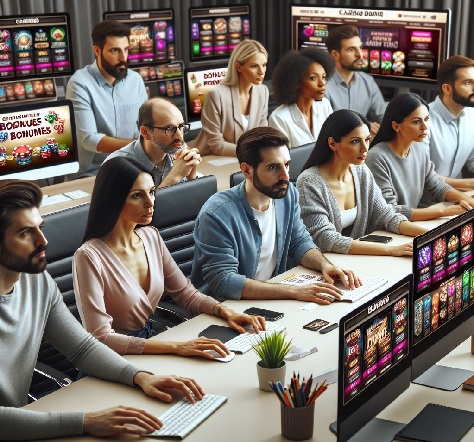
Many online casinos attract players through enticing bonuses and promotions. Welcome bonuses, free spins, and cashback offers can enhance the gaming experience by providing additional playing value.
However, players should carefully read the terms and conditions associated with these promotions. Betting requirements, withdrawal limits, and game restrictions often determine how beneficial a bonus truly is. Choosing a casino with fair and transparent bonus policies can significantly impact the overall gaming experience.
A seamless user experience is another critical aspect of selecting an online casino. Intuitive website navigation, fast loading times, and high-quality graphics contribute to player satisfaction. Additionally, mobile compatibility plays a vital role in modern online gambling. The best online casinos offer mobile-friendly websites or dedicated apps, allowing players to enjoy their favorite games anytime and anywhere. Responsive mobile gaming platforms ensure that users do not miss out on any features available on desktop versions.
Fairness and responsible gaming practices are fundamental to a trustworthy online casino. Independent audits from organizations like eCOGRA or iTech Labs verify game fairness and randomness. Moreover, responsible gaming features, such as deposit limits, self-exclusion options, and reality checks, help players maintain control over their gambling habits. Selecting an online casino that prioritizes fairness and responsible gambling safeguards players from potential risks and promotes a safe gaming environment.
By considering these factors, players can confidently choose the best online casino that aligns with their preferences. A careful selection process ensures a secure, enjoyable, and rewarding online gaming experience.
The field of gambling control is always changing to fit changing society perceptions and technical developments. It’s a reflection of shifting attitudes, not only rules. Governments all around are struggling to strike a mix between entertainment and ethical gaming from land-based casinos to internet sites. This changing terrain exposes a trend toward tighter regulations, consumer protection, and digital technology integration.
Governments are tightening laws including more licencing, taxes, and compliance rules for operators of online casinos. Age verification, geo-blocking, and AI-driven fraud detection among other security measures to stop unlawful activity. Blockchain technology is also under investigation to improve digital betting systems’ security, fairness, and openness by means of safe transactions.
To stop compulsive gambling, self-exclusion initiatives and therapeutic tools are in development. Additionally being enforced are stricter advertising limitations and ethical marketing policies.
To fight money laundering, operators are obliged to apply improved due diligence and reporting guidelines. Modern transaction monitoring systems guarantee financial security and assist in identifying unusual activity.
Trends in global gambling control show a will to strike a balance between social responsibility and innovation. Governments are creating a responsible and sustainable gaming environment for the future by giving player protection top priority, implementing tougher rules, and adopting technology solutions.
With its promise of fast riches, gambling can present a seductive front for illegal activity. Sadly, the gaming business has become rife with money laundering—the process of hiding the source of unlawfully acquired money.
Casinos as a Front: With their sophisticated financial systems and huge number of cash transactions, casinos can present perfect front for money laundering.
Smurfing: Large quantities can be hidden by little, regular cash deposits less below reporting levels.
High-rolling gamblers can place big bets using illegal money, trading filthy money for legal chips and then paying out the gains. Online gaming systems are especially susceptible to abuse because of their anonymity, which offers.
The emergence of cryptocurrencies with their innate anonymity has further complicated attempts to monitor and stop monetary laundering in online gaming.
Money laundering via gaming enterprises compromises not just the reliability of the sector but also drives other illegal activity. It can cover other major crimes such drug trafficking and terrorism.
Stopping laundering funds in the gaming sector calls for a multifarious strategy. This covers more thorough regulatory control, more openness, and the creation of advanced anti-money laundering technologies. Working collaboratively, law enforcement, industry operators, and officials can help to reduce the hazards and guarantee the long-term viability of the gaming sector.
A multi-billion dollar sector globally, gambling may sadly become a haven for corruption when entwined with government. The appeal of large sums of money can entices authorities to misuse their authority, therefore endangering society. Promoting responsibility and openness depends on an awareness of the several forms this corruption might manifest.
Perhaps the most often occurring type is bribery and kickback. In return for special treatment—such as licensing, tax discounts, or ignoring regulatory violations—officials could take bribes from gaming businesses.
With dishonest officials either ignoring or even actively supporting the operation, casinos and other gaming venues can be used to hide illegal money.
Officials may use their influence to guide licenses or contracts toward particular businesses in return for personal benefit, even if such businesses are not the most competent.
Corrupt officials can pilfers government money set for linked projects or gambling control for personal gain.
Governmentally, gambling corruption is a major problem with broad repercussions. Understanding the several shapes it takes and applying robust preventative measures will help us to make sure the gaming sector runs fairly and transparently, therefore serves the public interest instead of benefiting a small number of individuals.

For a long time now, the confluence of sport and politics has been an area of interest and debate, and soccer broadcasts (축구중계) are no exception.
In recent years, the advertising of betting or gambling during the soccer broadcasts has received a lot of focus.
Such changes are often accompanied by a shifting social and political environment as well as changes in government policies and legal practices.
From marketing and advertising to framing, here are six ways in which the changing nature of betting on soccer broadcasts is indicative of political developments.
The political environment resonates with the legal framework of gambling in soccer broadcasts, specifically with the betting regulations.
As nations are changing their positions on gambling, some have started to relax these policies, permitting betting corporations to sponsor major competitions and be referenced in soccer broadcasts.
For example, the UK and several countries within Europe have slowly but surely adopted legislation that permits the placing of bets on sports events such as soccer.
Such a shift suggests that there is an increased willingness to accept gambling and its commercialization through the mass media which will inevitably alter the content that is available for watching.
Changes within the political framework can always lead to changes in advertising regulations.
Within some jurisdictions, there may be restrictions as to when and how gambling adverts are placed during soccer broadcasts.
For example, in certain areas, betting adverts may not be permitted at all during the day or on channels that have children as their target audience.
These political strategies are aimed at addressing the rampant gambling addiction that exists among certain segments of society, and this subsequently affects the circulation of advertisements during soccer matches.
It is a common practice for governments to tax gambling revenues in a bid to enhance the existing public funds, and this tends to have an effect on almost all soccer broadcasts in an indirect manner.
Betting firms should scale down their sponsorship expenditures on soccer leagues or teams in jurisdictions that raise gambling taxes and in some cases introduce it.
On the other hand, there are countries that have low tax regimes that will massively increase investment in the sport, leading to aggressive advertising during coverage.
ALSO READ: The Influence of Political Decisions on Football Betting Markets
The balance between social changes favoring responsible gambling and critiquing gambling-sport relations has convinced the governments to formulate policies that are in control of this relationship.
In some jurisdictions, there is a trend in the direction of stricter oversight of gambling sponsorship in soccer television broadcasts.
This will probably bring about restrictions on the brand exposure that betting companies can have with elite soccer clubs or tournaments.
International politics affects the activities of gambling companies across borders.
The existence of diplomatic tensions between countries may affect the nature of the sponsorship deals and the manner in which betting companies operate in the broadcast of soccer.
For instance, political conflicts could deny certain foreign betting companies the right to do business in some regions, influencing the soccer broadcasts from those regions.
Lastly, the attitude taken by the politicians also shapes the general perception that the public has towards gambling.
In jurisdictions where gambling is increasingly being accepted with political endorsement, the number of betting ads during soccer broadcasts increases.
Politicians who approve of gambling as a form of recreation will advocate for its incorporation into sports media and, so, changes to how gambling is presented to and perceived by the public.
The connection that exists between gambling and soccer broadcasts is deeper than a simple business arrangement. It is also influenced by political factors at global, national, and local levels.
From legislative provisions to societal perceptions, the political background is an important factor when attempting to measure the level of gambling activities people engage in while watching soccer.
The socio-political context and the industry of betting are continuously changing; their impact on the beautiful game will change too.
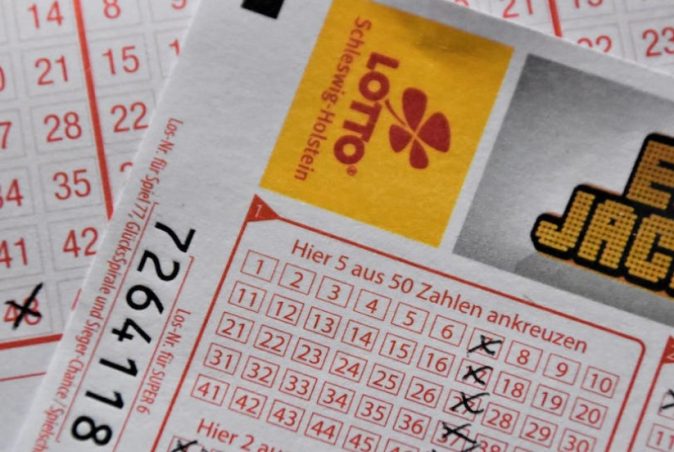
Political decisions have always influenced gambling laws, and the rise of online lottery is no exception. As more people turn to digital platforms to participate in lotteries, lawmakers face new challenges in regulating this rapidly growing industry. Political decisions can greatly impact the future of online lottery, shaping its accessibility, regulation, and overall growth.
Online lottery regulations vary greatly worldwide, and political debates continue to shape the framework in which these platforms operate. Lawmakers often find themselves balancing the desire for increased revenue with concerns about potential negative consequences such as gambling addiction or illegal gambling operations.
When considering which website is good for buying a lottery online, the answer often depends on the legal landscape in a particular region. Some countries have embraced online lottery systems, integrating them into their national or state-run programs, while others remain hesitant or outright ban them. Explore platforms that are secure and adhere to fair gaming standards (source: ซื้อหวยออนไลน์เว็บไหนดี).
The rise of online lottery platforms has been driven by convenience, with people enjoying the ability to purchase tickets and play from their computers or mobile phones. However, the political landscape is not always as welcoming. While some states and countries have welcomed this shift, others have imposed strict regulations or have yet to legalize online lotteries.
For instance, in the United States, states like Michigan and Pennsylvania have embraced online lottery systems, generating millions in tax revenue. On the other hand, other states, such as Nevada and Alabama, have yet to allow online lottery, reflecting concerns over gambling addiction and the potential for underage participation.
Politicians often view online lotteries as a lucrative revenue stream. With state-run lotteries generating millions of dollars for public programs like education and infrastructure, many regions see the online market as an untapped resource. However, the political debate centers around how these funds should be allocated and the risks that come with easy access to gambling.
For some lawmakers, the financial benefits outweigh the risks. For others, the fear of increased gambling addiction and illegal online activity prompts calls for stricter regulations or even bans on online lottery. These concerns are crucial in shaping the ongoing debate on the future of online lottery.
Advancements in technology have played a crucial role in the expansion of online lottery. Mobile apps, websites, and payment gateways have made it easier for people to participate in lotteries from anywhere in the world. However, technology also raises new concerns for regulators.
The anonymity of online transactions can make it harder to monitor for signs of gambling addiction or underage gambling. Additionally, the rise of blockchain technology in online gambling presents both opportunities and challenges. While blockchain promises transparency and fairness, it also raises concerns about its potential use for illegal activities, such as money laundering. Politicians must navigate these technological developments to ensure that online lotteries remain secure and trustworthy.
Around the world, countries approach the regulation of online lotteries differently.
As the popularity of online lotteries grows, political debates will continue to shape their regulation. Future laws will likely focus on player protection, responsible gambling practices, and ensuring that online platforms remain secure and fair.
International cooperation could play a key role in the future of online lottery regulation. Since many online lottery operators run cross-border services, a lack of consistent international regulation has created opportunities for illegal activities. As a result, global collaboration will be necessary to ensure that online lotteries are fair and safe for participants everywhere.
READ ALSO: How Does Gambling Policy Affect the Lottery Industry?
The intersection of politics and online lottery is critical in shaping the future of gambling. While online lotteries offer significant economic benefits, they also present challenges that lawmakers must address. As the digital landscape continues to evolve, political decisions will play a key role in determining the direction of the online lottery industry. Whether through regulation, taxation, or technological advancements, the impact of politics on online lottery will continue to define its future.
Though it offers amusement and financial gains, the gambling sector also brings possible hazards. Understanding this, numerous operators and regulatory authorities have started social responsibility projects to encourage responsible gaming and shield weaker people.
Maintaining individual and society’s welfare depends on responsible gaming. The sector can help to reduce the negative effects of problem gambling and establish a safer environment for everyone by encouraging responsible gaming policies.
Operators, legislators, and people must cooperate to carry out and enforce successful social responsibility projects if we are to build a sustainable and moral gambling sector.
One strong force that greatly affects economies all around is the gaming business. Gaming corporations frequently use lobbyists to push for their agenda in order to safeguard their interests and promote positive legislation.
Lobbyists seek to persuade legislators and government officials to back measures favoring the gaming sector. This can be pushing for tax cuts, the legalization of particular kinds of gaming, or lessening of rules. They might also strive to thwart policies that might hurt the sector, including more taxes or tighter rules.
Direct lobbying, public relations, and grassroots initiatives are some several ways one can lobby. To build public support for their cause, lobbyists could visit with legislators, speak at hearings, and plan grassroots initiatives. They might also employ public relations strategies to change public perspective and affect media coverage.
Although lobbying is a respectable and lawful activity, it’s crucial to make sure it’s carried out clearly and morally. Overwhelming lobbying might cause corruption and erode public confidence.
In essence, the impact of the gambling sector on politics is noteworthy; so, lobbyists are rather important in forming the regulatory environment. Although lobbying is a valid instrument for promoting industry interests, it is imperative to keep ethical standards and openness to guarantee the welfare of the public as well as the sector.
Online gaming is a vast and always-changing environment, and casino site rankings are crucial in leading users to the top platforms. Still, it’s sometimes disregarded how politics shapes gaming rules and, therefore, affects casino site rankings (카지노사이트 순위). This post will discuss the complex link between politics and gambling and how it shapes the online casino rating scene.
Here’s how politics play their part in handling gaming rules.
The legislative framework controlling gambling operations is significantly shaped by politics. Laws and rules differ among nations and areas, which affects how online casinos run. These rules can affect the licensing procedure, the availability of some games, and the general legality of online gambling.
Political decisions also define the establishment and operation of authorities supervising gaming operations. These bodies guarantee fair play, consumer protection, and industry integrity in gambling through their respective roles. The performance of these regulating authorities has a direct bearing on the standing and reputation of internet gambling websites.
The effects of politics on casino site rankings:
License and compliance are among the main elements affecting casino site rankings. Online casinos run by respectable licenses from well-regulated countries are often regarded as higher. Political decisions over licensing criteria and compliance standards can influence the reputation and ranking of casino locations.
 Political decisions might also affect the market accessibility for online casinos. Players may have restricted access to particular casino sites in areas where gambling is highly regulated or prohibited. On the other hand, areas with more lenient gambling regulations could witness an explosion of Internet casinos, which would drive more competition and higher site ranking requirements.
Political decisions might also affect the market accessibility for online casinos. Players may have restricted access to particular casino sites in areas where gambling is highly regulated or prohibited. On the other hand, areas with more lenient gambling regulations could witness an explosion of Internet casinos, which would drive more competition and higher site ranking requirements.
Governmentally determined tax laws can affect the profitability and appeal of online casinos. While good tax laws can stimulate development and investment, high tax rates may discourage businesses from joining some markets. Eventually, these political choices can influence the availability and ranking of casino locations across several countries.
Political choices about gambling rules usually prioritize consumer safety. Maintaining player confidence depends on online casinos following exacting standards of security and fairness. These elements are considered in casino site rankings, which highlight systems that prioritize consumer protection.
Furthermore, ethical questions are at the junction of politics and gaming. Governments have to strike a balance between the possible social negative effects of gambling addiction and the financial advantages of a healthy gaming business. Political choices addressing these ethical issues might affect the ranking and impression of casino locations.
The relationship between politics and gambling is multifarious and complicated, with significant consequences for casino site rankings. Political choices on licensing, compliance, market accessibility, and taxes powerfully shape the terrain of internet gambling. Knowing how politics affects site rankings can enable gamers of online casinos to make wise decisions as they negotiate the realm of these casinos. Ultimately, the interaction of politics and gambling emphasizes the need for a transparent and highly regulated sector that prioritizes ethical issues and customer protection.
Legalizing gambling has been a divisive topic in many countries all around. Legalizers sometimes contend that their policy can help the economy and provide employment. The link between job development and gambling legalization is complicated and multifarious, though.
Legalization of gambling can directly create jobs in many different fields. To run their operations, casinos and other gambling establishments must staff their buildings. This covers positions including dealers, cashiers, security guards, and others. Legalization of gambling can also generate employment in allied sectors such travel and hospitality.
Legalizing gambling can also indirectly create jobs. Many times, visitors to casinos or other gaming facilities spend their money on other items such food, beverages, and entertainment. This can produce employment in pubs, restaurants, and other companies.
Legalisation of gambling can also help a community economically. Many times, casinos and other gaming facilities pay taxes to the government. Roads and schools are among public services funded by this income.
Although legalizing gambling can help the economy and provide employment, one should take careful consideration the possible negative effects. Addiction to gambling could affect people as well as families. Furthermore, some research have indicated that legalizing gaming might cause crime to rise.
Legality of gambling and employment generation have a complicated relationship. Legalizing can generate employment and strengthen the economy, but it’s crucial to balance the possible advantages against the possible negatives. Whether or not to legalize gambling is ultimately a political one that needs considerable thought given all the elements engaged.
 Online gambling has become a booming industry globally, particularly in regions where lotteries like Togel are immensely popular. Political decisions and regulatory frameworks play a critical role in shaping how these platforms operate, particularly regarding the legality and safety of online betting. Togel, a number-based lottery game rooted in Southeast Asia, has gained traction globally. However, its operation is heavily influenced by national politics and laws that vary from one country to another.
Online gambling has become a booming industry globally, particularly in regions where lotteries like Togel are immensely popular. Political decisions and regulatory frameworks play a critical role in shaping how these platforms operate, particularly regarding the legality and safety of online betting. Togel, a number-based lottery game rooted in Southeast Asia, has gained traction globally. However, its operation is heavily influenced by national politics and laws that vary from one country to another.
The rise of trusted Togel platforms is often a direct result of the interplay between political forces and gambling regulation. Visit ittelkom for more details on the current regulatory landscape and how it affects various industries. Understanding these regulations can provide insight into how governments balance allowing economic growth through gambling and protecting the public from potential harm.
Political stances on gambling vary widely around the world, from complete prohibition to liberal acceptance. Governments often regulate gambling to minimize its potential social harms, such as addiction and financial ruin. At the same time, they recognize its potential as a significant source of revenue. Togel platforms, in particular, are often in the spotlight due to the ease of online access and the large sums of money involved.
Many Togel platforms operate across borders, making it difficult to standardize regulations. Countries have their own rules regarding online gambling, and operators must navigate these laws to offer trusted services. Trusted Togel platforms are usually licensed by gambling authorities in specific countries or regions, such as the Malta Gaming Authority or the UK Gambling Commission. These licensing bodies impose strict rules on the platforms, requiring them to maintain fairness, protect player data, and ensure prompt payment of winnings.
Unregulated Togel platforms pose a significant risk to consumers, as they often operate without any oversight. Players on these platforms have little recourse if their winnings are not paid out or if they encounter security issues. Many countries have been tightening their regulations to combat illegal Togel operations, but enforcement remains a challenge, especially in jurisdictions where gambling laws are ambiguous or poorly enforced.
Because Togel is particularly popular in Southeast Asia, many trusted platforms are based there but cater to global audiences. This can create jurisdictional challenges, where operators must comply with different sets of laws depending on where their customers are located. This complexity often requires platforms to employ legal experts to ensure compliance, driving up operational costs.
When governments introduce new regulations or change existing laws, it can have a profound impact on the gambling industry. Tightening regulations may cause some Togel platforms to exit specific markets, reducing competition and potentially driving up costs for players. On the other hand, clear, consistent regulations can make a market more attractive for operators, encouraging investment and innovation.
Trust is the foundation of the online gambling industry. Players are more likely to use a Togel platform if they believe it is regulated and operates within the bounds of the law. Regulatory changes that enhance transparency, provide better player protection, or improve dispute resolution processes can increase consumer confidence in trusted platforms.
Regulated Togel platforms are often required to implement measures that promote responsible gambling. This can include tools for self-exclusion, limits on how much money players can deposit, and resources for those struggling with gambling addiction. Political decisions around regulation can directly affect how well these measures are enforced and what protections are available to players.
As online gambling continues to grow, it’s likely that political and regulatory landscapes will evolve in response. Governments worldwide increasingly recognize the need to update their laws to account for the rapid technological advances in the gambling sector. For Togel platforms, this could mean stricter compliance standards, higher taxes, or greater emphasis on social responsibility.
At the same time, the push for more deregulation in certain countries may provide new opportunities for growth. Platforms that can adapt quickly to changing political environments will have the best chance of maintaining their status as trusted providers in the online gambling world.
READ ALSO: How Indonesia’s Slot Gacor Craze is Shaping the Political Landscape
The intersection of politics and gambling is a complex and ever-changing dynamic. For Togel platforms, the key to success is navigating these regulatory landscapes while maintaining consumer trust. As political attitudes toward gambling continue to shift, trusted Togel platforms must remain agile, ensuring they comply with the latest laws while offering secure, fair, and responsible services.
 Gambling and politics have always been closely intertwined, with laws and regulations shaping how and where people can gamble. However, in recent years, the conversation has shifted dramatically as online platforms like Oriental Play have emerged. Link Slot Oriental Play is a prime example of how online gambling has grown beyond traditional boundaries, leading to political debates over regulation, taxation, and consumer protection.
Gambling and politics have always been closely intertwined, with laws and regulations shaping how and where people can gamble. However, in recent years, the conversation has shifted dramatically as online platforms like Oriental Play have emerged. Link Slot Oriental Play is a prime example of how online gambling has grown beyond traditional boundaries, leading to political debates over regulation, taxation, and consumer protection.
In this ongoing political landscape, slot game platforms are at the forefront of the discussion, offering a convenient way for players to enjoy online slots while raising questions about the need for modernized gambling regulations.
Political leaders and lawmakers have long been divided over the regulation of gambling. In many countries, gambling is heavily restricted, while others have embraced it as a source of revenue. The rise of online platforms have added a new layer to the debate, with politicians grappling with how to regulate this growing industry.
On one hand, there’s a push for more regulation to protect consumers and ensure fair play. Conversely, there’s the argument that gambling should be more accessible to meet public demand. Slot platforms online are caught in the middle of this debate, as they operate in a largely unregulated space in many regions.
These slot sites challenge traditional gambling norms by offering players a wide range of online slots without visiting a physical casino. This has raised concerns among policymakers about how to regulate online gambling effectively. Some key points of debate include:
As more players turn to online slots, these questions become increasingly relevant. Oriental Play has been central to these discussions due to its growing popularity and widespread use.
The political debate over gambling is far from over. As slot sites continue gaining traction, lawmakers must develop new regulations addressing the unique challenges online gambling poses. While some countries have already taken steps toward regulating online platforms, many others lag behind, leaving players in a legal gray area.
In the future, we can expect more robust discussions on how to regulate gambling platforms. Whether through taxation, licensing, or consumer protection laws, governments must adapt to the rapidly changing landscape of online gambling.
READ ALSO: The Role of the Government in Regulating Gambling Advertising
The rise of slot games online has ignited a political debate over the future of gambling regulation. As more players turn to online gambling, politicians will need to decide how to balance consumer protection with the growing demand for more accessible gambling options. Slot sites are not just an online platform; it’s a key player in the future of gambling policy.